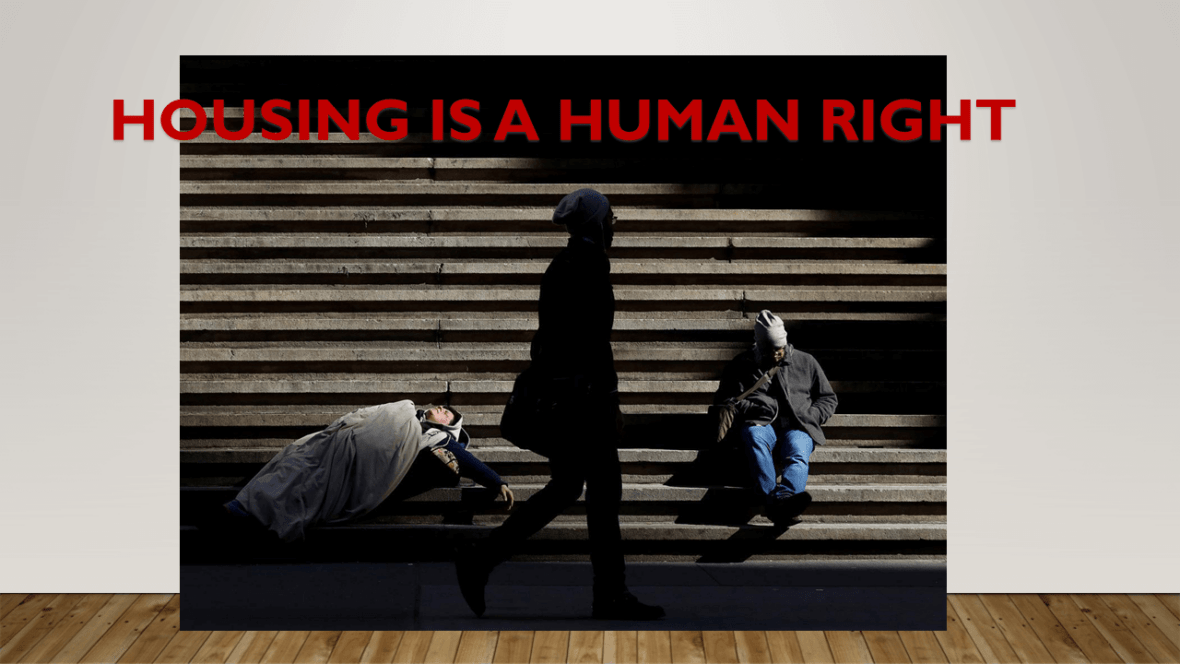Homelessness and Housing: In our lives, the house and the home are intertwined, each complementing the other. Both are essential, and the synergy between the two creates a life rich with comfort, love, and meaning. For a truly fulfilling life, we need both a house and a home. A house provides the structure and security we need, while a home fills that structure with love, meaning, and purpose. Striking a balance between these two aspects is crucial for our overall well-being.
In this article, we won’t be discussing the elements related to homes that hold deep sentimental value, and significance, and are truly invaluable. Instead, our focus is on houses that serve as essential shelters, fulfilling a fundamental need in our lives and within our socio-system fabric.
Unfortunately, not everyone has the privilege of having a stable house. Homelessness is a broader and more widely used term, in which individuals and families do not have a stable, safe, and consistent place to live. A lack of permanent housing can include living on the streets, in shelters, in temporary or transitional housing, or in inadequate and overcrowded accommodation.
Homeless individuals face a myriad of challenges that stem from their lack of stable and safe housing. These challenges are often interconnected and can make it extremely difficult for them to break the cycle of homelessness.
The growing number of individuals and families without safe and stable housing can lead to numerous negative consequences for the affected individuals and communities. Addressing homelessness is critically important for several reasons, including the well-being of individuals, the health of communities, and the overall social fabric.
In this blog, we will delve into the complex interplay between homelessness and housing under following headings:
- The Complexity of Homelessness
- The Vital Role of Housing
- Government Initiatives and Policies
- Community Engagement
- Moral and “Social Responsibilities
- Political Parties and their Role in Homelessness
The Complexity of Homelessness

Homelessness is often a consequence of broader social and economic inequalities. Understanding the intricacies of homelessness is crucial. Here are some of the key reasons why homelessness persists:
- Lack of Affordable Housing
- Economic Inequality
- Gaps in Social Safety Nets
- Housing Discrimination
- Crisis Events such as eviction, domestic violence, natural disasters
- Inadequate Support Services
- Complex Bureaucracy
- Enough Affordable Housing Programs
- Stigmatization and Discrimination
Addressing homelessness requires a multi-faceted, long-term effort that requires collaboration among various stakeholders including:
- Local Government
- State Government
- Federal Government
- Non-Profit Organizations
- Housing Authorities
- Law Enforcement
- Organizations / Employers / Corporations
- Housing Developers, and landlords
Despite the presence of responsible authorities and their efforts, the persistence of homelessness is a historical and ongoing challenge. The rise in homelessness is a concerning social issue. Globally, the count of homeless individuals increases each year, with only a handful of countries being an exception to this trend. The United Nations has documented that approximately 1.6 billion people across the world live in inadequate housing conditions, and roughly 15 million people are forcibly removed from their homes.
Worldwide Homelessness in 2023: The challenge of homelessness knows no borders, and affects nations across the globe. According to data from World Population Review (source: homelessness by country):
- Nigeria faces the most sevier homelessness crisis globally, with an estimated 24 million people lacking stable housing. Conversely, Grenada boasts the lowest homelessness rate in the world.
- Pakistan also faces a significant homelessness crisis globally, with an estimated 20 million people lacking stable housing.
- Egypt confronts a global homelessness challenge, with an estimated 12 million people lacking stable housing.
The factors linked with homelessness matters are not mere oversimplifications but rather deeply intricate and interconnected elements that persist in our societies. The need for a well-structured and precise framework to address these issues is paramount.
The Vital Role of Housing

Housing is not just a basic human need; it is a fundamental human right. Stable and affordable housing offers more than just shelter; it serves as the cornerstone for individuals to access employment, education, healthcare, and social services.
Why Housing is the key to Addressing Homelessness?
Housing First approach
The Housing First approach is a pioneering and compassionate strategy for addressing homelessness. It recognizes that stable housing is a fundamental human right and a prerequisite for individuals to address underlying issues, such as addiction and mental health challenges. This approach has garnered widespread support and has been successful in numerous communities.
Principles of the Housing First Approach
- Immediate Access to Housing without Preconditions: Individuals not required to meet specific criteria
- Low Barrier to Entry: Minimal barriers for those facing complex challenges
- Supportive Services: Services provided to individuals once housed
How the Housing First Approach Works
- Promoting Stability and Recovery
- Cost Effective
- Upholding Human Dignity
- Reduces Recidivism
- Fostering Community Integration
Many communities and cities have implemented Housing First programs with remarkable success. For example, Utah saw a significant reduction in homelessness after adopting this approach. In Canada, the At Home/Chez Soi project demonstrated the effectiveness of Housing First in reducing homelessness and improving the quality of life for participants.
Without housing, it is challenging for individuals to address the root causes of their homelessness. Stable housing offers a safe, stable environment where individuals can work on rebuilding their lives.
Government Initiatives and Policies

Governments and policymakers play a crucial role in addressing homelessness through housing initiatives and policies. Some of these include:
- Affordable Housing Programs: The government’s role in creating and funding housing options for low-income individuals and families.
- Homelessness Prevention: Strategies to prevent homelessness, including eviction assistance, financial support, and temporary housing.
- Supportive Services: The significance of wraparound services like mental health support, substance abuse treatment, job training, and case management for homeless individuals.
Community Engagement

Communities, local businesses, and individuals can make a significant impact in addressing homelessness:
- Volunteer and Support: Contributing to local shelters and organizations to offer immediate assistance to those in need.
- Advocacy: Advocating for policies that advance affordable housing, support services, and protections for homeless individuals as a vital step towards meaningful change.
Corporate Social Responsibility

Housing and Corporate Social Responsibility (CSR) are two critical aspects that intersect, creating opportunities for business to make a positive impact on society. Here is how housing and CSR are connected:
- Affordable Housing Initiatives
- Homelessness Preventions
- Employee Housing Benefits
- Community Development
Political Parties and Homelessness

- Bipartisan support for homelessness initiatives can also lead to more stable and long-lasting policies.
- Making homelessness an imperative part of a political party’s agenda can have a significant impact on authorities.
- By prioritizing this issue, parties can bring it to the forefront of public discourse and hold governments accountable for addressing it effectively.
Addressing homelessness and housing inequity is not a single-faceted problem but a complex and interconnected challenge. It requires persistent, collaborative efforts from governments, communities, and individuals to make progress. With the fundamental belief that housing is not just a need but an inherent right, vital for the advancement and well being of societies.
Concluded….
Disclaimer: The majority of the pictures on our platform are sourced from Google images and Pexels, and may not indicate copyright ownership. We will promptly remove the picture with sincere apologies, if any copyright claims.







